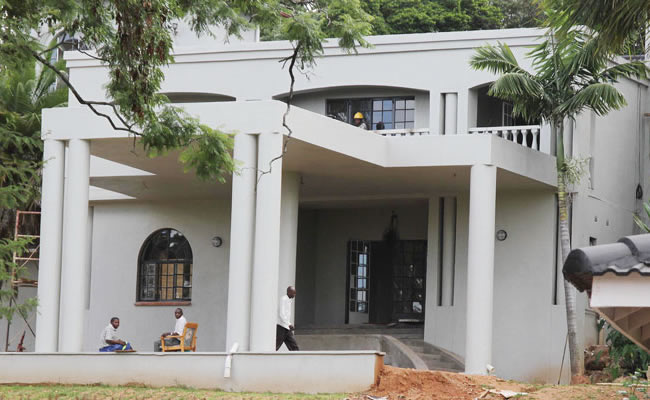The imposing house at number 49 Kew Drive in Highlands, once a symbol of opposition defiance and the residence of the late Morgan Tsvangirai, now stands as a stark testament to the ever-shifting political landscape of Zimbabwe. This grand residence, once a bastion of the Movement for Democratic Change (MDC), now serves as the headquarters of the Mutapa Investment Fund (MIF), a powerful entity under the auspices of the ruling Zimbabwe African National Union – Patriotic Front (ZANU-PF). This dramatic transformation, a microcosm of the broader political realignment in the country, has sparked both intrigue and concern.
The history of the house is inextricably intertwined with the political struggles of Zimbabwe. Acquired by the state during the Government of National Unity (GNU) period, it was designated as the official residence of the Prime Minister. Following the dissolution of the GNU, Tsvangirai, the MDC’s founding president and GNU’s prime minister, continued to reside there, turning it into a de facto headquarters for his faction during the turbulent years leading up to the 2017 coup.
In 2018, as Tsvangirai battled illness, President Emmerson Mnangagwa offered to gift him the house. However, following Tsvangirai’s passing, the offer was rescinded, and a proposal was made to sell the property to his widow, Elizabeth Tsvangirai, for US$1.8 million, payable over 60 months. Local reports suggest this price was eventually negotiated down to $1.5 million.
Elizabeth Tsvangirai, daughter of Joseph Macheka, a prominent ZANU-PF politburo member, retained the house and listed it for rent through her real estate business, Royal Properties and Construction. Before that, it had been reported that Macheka, whose marriage to Tsvangirai was her fourth marriage, had turned the mansion into an Airbnb accommodation where the whos’who of this world could come and book for overnight accommodation. However, the property would later fall into a state of disrepair, with neglected paintwork and overgrown gardens.
The recent transformation of the house into the MIF’s headquarters has been swift and striking. Images circulating on social media depict members of the ZANU-PF Economic Empowerment Group, adorned with party scarves and raised fists, gathering at the house for a conference. The property has since undergone a complete overhaul, with walls repainted in a gunmetal grey and a large blue Mutapa Investment Fund sign proudly displayed over the electric gate.
This symbolic shift, from a symbol of opposition to a hub of the ruling party’s economic arm, has not gone unnoticed. The irony of the house’s new role is palpable, reflecting the dramatic realignment of power in Zimbabwe.
The MIF, under the leadership of former Reserve Bank of Zimbabwe governor, Dr John Mangudya, has taken control of 22 state-owned companies, collectively holding billions of dollars worth of assets. This concentration of power has raised concerns about transparency and potential corruption, particularly after President Mnangagwa exempted these companies from the Public Procurement and Disposal of Public Assets Act.
This exemption has sparked widespread criticism, with many fearing that it will create a breeding ground for abuse and mismanagement. The historical track record of state-owned enterprises in Zimbabwe provides ample reason for concern. For decades, these entities have been plagued by corruption, mismanagement, and a lack of accountability. Their contribution to the gross domestic product has plummeted from 40% in the 1990s to a mere 12% in 2021.
The plight of Air Zimbabwe, now under MIF management, is a stark illustration of this decline. Once a leading airline, it has become synonymous with corruption, mismanagement, and the misappropriation of funds. Similarly, the National Railways of Zimbabwe (NRZ) has been plagued by excessive perks for managers, tender manipulation, and poor service delivery, driving the entity to its lowest point.
The MIF’s acquisition of these ailing state-owned enterprises has raised concerns about the government’s commitment to transparency and accountability. Many fear that the exemption from procurement law will further exacerbate the problems that have plagued these entities for decades.
This mansion on Kew Drive, once a symbol of opposition defiance, now stands as a stark reminder of the shifting power dynamics in Zimbabwe. The MIF’s presence within its walls represents a new era of political and economic control, one that has sparked both hope and apprehension. The future of these state-owned enterprises, and indeed the future of Zimbabwe itself, hangs in the balance.












